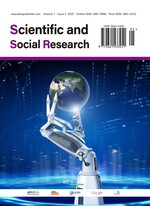Abstract
Based on the project-based learning design framework, this paper designs specific project-based activities for sixth-grade elementary school students in conjunction with the elementary school science course “Crystals under the Magnifying Glass.” The activities included searching for crystals around them, observing crystals using a microscope, making artificial crystals, crystal knowledge sharing session, crystal artwork creation, and exploring the conditions of crystal growth, aiming to deepen the students’ understanding of crystal knowledge as well as to cultivate their scientific thinking, inquiry practice, and teamwork skills through exploratory, technological, creative, social, aesthetic, and moderated practices. The results showed that the students showed strong interest in the project-based activities, and their learning autonomy, cooperative learning ability, and innovation ability were significantly enhanced. However, the organic integration of subject knowledge and project-based activities and the breaking of students’ inherent thinking need to be further strengthened.
References
Li DJ, Wang YM, 2024, A Comparative Analysis of Elementary School Science Curricula across the Taiwan Region Strait and in Hong Kong and Macao. Science Education in Elementary and Middle Schools, 2024(5): 32–37.
Yu JY, 2024, Exploration of Interdisciplinary Project-based Learning Practice in Elementary Science. Teaching and Management, 2024(23): 63–66.
Wu X, Kong FZ, 2019, The Implications and Enhancement of the Sense of Acquisition of Comprehensive Practical Activities. Teaching and Management, 2019(29): 20–22.
Yang WY, Liu XY, Liu ES, 2015, The Background of the Introduction of the Next Generation Science Education Standards in the United States and its Orientation to Science Education. Contemporary Education Science, 2015(21): 39–42.
Zhou C, Kolmos A, 2013, Interplay between Individual Creativity and Group Creativity in Problem and Project-Based Learning (PBL) Environment in Engineering Education. International Journal of Engineering Education, 29(4): 866–878.
Lee HJ, Lim C, 2012, Peer Evaluation in Blended Team Project-Based Learning: What Do Students Find Important? Educational Technology & Society, 15(4): 214–224.
Zhang WL, Zhang SQ, Lin JF et al., 2016, Research on the Design and Practice of Project-based Learning Based on the Concept of Curriculum Reconstruction in Network Environment. Research on E-Chemical Education, 2016(2): 38–45 + 53.
Wang JBL, 2019, Research on Project-based Activity Design and Application of Elementary School Science Curriculum Based on STEAM Concept, thesis, Northeast Normal University, 5.
Zhang HW, 2019, Exploration of the Application of Project Teaching Method in High School Chemistry Teaching, thesis, Ningxia University.
Xia XM, 2019, How to Design Project-based Learning in the Era of Literacy. Jiangsu Education, 2019(22): 7–11.
Zhong XQ, 2020, Research on Elementary School Science Project Teaching Based on STEAM Education Concept, thesis, Fujian Normal University.
Liu XY, 2021, Research on the Design and Application of STEM Project-based Teaching based on Knowledge Map, thesis, Qufu Normal University.
